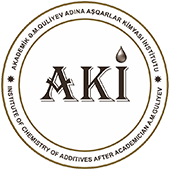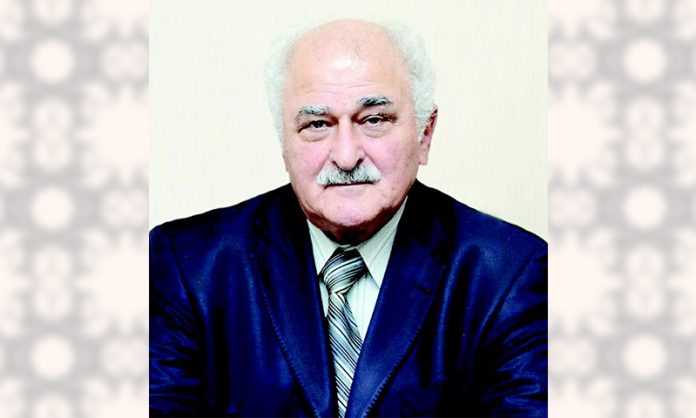Recently, both throughout the world and in our country, the assessment of the scientific activity of scientists and scientific researchers is carried out on the basis of scientometric criteria. At the same time, one of the main requirements for defending dissertations to obtain the degree of Doctor of Philosophy and Sciences by doctoral students and dissertators is the publication of articles in journals with a high impact factor, archived in prestigious foreign databases. Therefore, researchers prefer to publish their highest quality articles in journals included to well-known international databases “Web of Science” or “Scopus” of foreign countries. Of course, those same foreign journals benefit from this process, and our national journals lose. However, one of the main ways of integrating Azerbaijani science into the world science is to increase the quantitative and qualitative indicators of journals published in the country, thereby ensuring their inclusion in international databases.
According to the study, very few journals from Azerbaijan are included in international databases. One of these journals is “Chemical Problems”, I am the editor-in-chief in this journal. It is gratifying that today the impact factor of the journal for 2022 has been announced in the Scopus index database.
According to the announced results of the analysis of the parameters of the Scopus database, the journal has significantly moved in a positive direction this year. Thus, the impact factor of the journal, which was 0.1 in 2021, is declared as 0.6 for 2022.
The journal “Chemical Problems” has been published since 2003. To date, the journal has published more than 2100 scientific articles.
The journal has been abstracted in the scientific database Chemical Abstract since 2009. The journal is registered with the International Center for the Registration of Periodicals and has received indexes ISSN 2221-8688 (printed version) and 2522-1655 (electronic version). In addition, the journal “Chemical Problems” is located in many authoritative bibliographic, reference databases, repositories and search engines. Scientific articles published in the journal from 2016 (No. 1) to 2019 (No. 3) are indexed in the Web of Science database, and since 2018 they have been registered in the Crossref digital search engine and receive DOI.
Since 2015, RSCI has been included in Russian indexing bases. It should be noted that RSCI was created on the basis of an agreement between the eLibrary and Clarivate Analytics databases on the Web of Science platform.
Since September 2021, the journal has been included in the international indexed database “Scopus”. It should also be noted that the journal “Chemical Problems” is included in the list of recommended journals included in authoritative international scientific databases, approved by the Higher Attestation Commission under the President of the Republic of Azerbaijan.
If we say that the journal “Chemical Problems” has achieved this through its effective and exemplary activity, we will not be mistaken.
To decide whether to include scientific journals in international scientific databases, editors and publishers are required to follow the selection criteria adopted by these systems. Studies show that most of the requirements of popular databases meet international standards for scientific publications and do not differ significantly from each other.
As you know, the selection of journals for the WOS and Scopus databases depends on a number of conditions, including the quality of the journal, its compliance with international standards, especially its publication in English, representation on the editorial board of scientists known both in the country and abroad with academic profile pages, as well as access to international scientific search systems, regularity of publications, publication of articles by both domestic and foreign scientists, and other criteria.
We can note with concern that the scientific publications of Azerbaijan still lag far behind the leading foreign journals in this field. However, as an exception, you can see each of the above items in the activities of the journal “Chemical Problems” in question. We note with regret that many of our national journals do not yet have access to WOS and Scopus. In the conditions of the information society, where international scientific relations are rapidly developing, the main obstacle is the discrepancy between these journals and the accepted normative international standards in some respects.
Therefore, it is very important to adapt published national journals to international requirements and ensure their representation in international authoritative bases. We must not forget that the journals in the WOS and Scopus databases must be published in English. However, even if most of the publications and journals in Azerbaijan have a certain reputation in the scientific community, they cannot enter these databases precisely because they are not in English. On the other hand, articles in foreign English-language journals are not widely published due to insufficient knowledge of this language by a certain part of scientists. Sometimes, the lack of the full text of the articles in English makes it difficult for foreign scientists to familiarize themselves with the results of these articles, and as a result, the number of references to the articles is very small.
Thus, in order to speed up the integration of Azerbaijani science into world science, it is necessary to increase the access opportunities of our scientists and science experts in foreign journals included in prestigious databases such as WOS and Scopus, as well as to represent national journals in prestigious international scientific databases. In other words, consistent work should be done in order to adapt them to the requirements of international bases, and minimum requirements for their representation in those bases should be provided, at least at the initial stage. For this, the adaptation of journals published by scientific institutions and educational institutions in the republic to international requirements should become a requirement rather than a recommendation.
Academician Vagif Farzaliyev
Editor-in-chief of “Chemical Problems” journal


